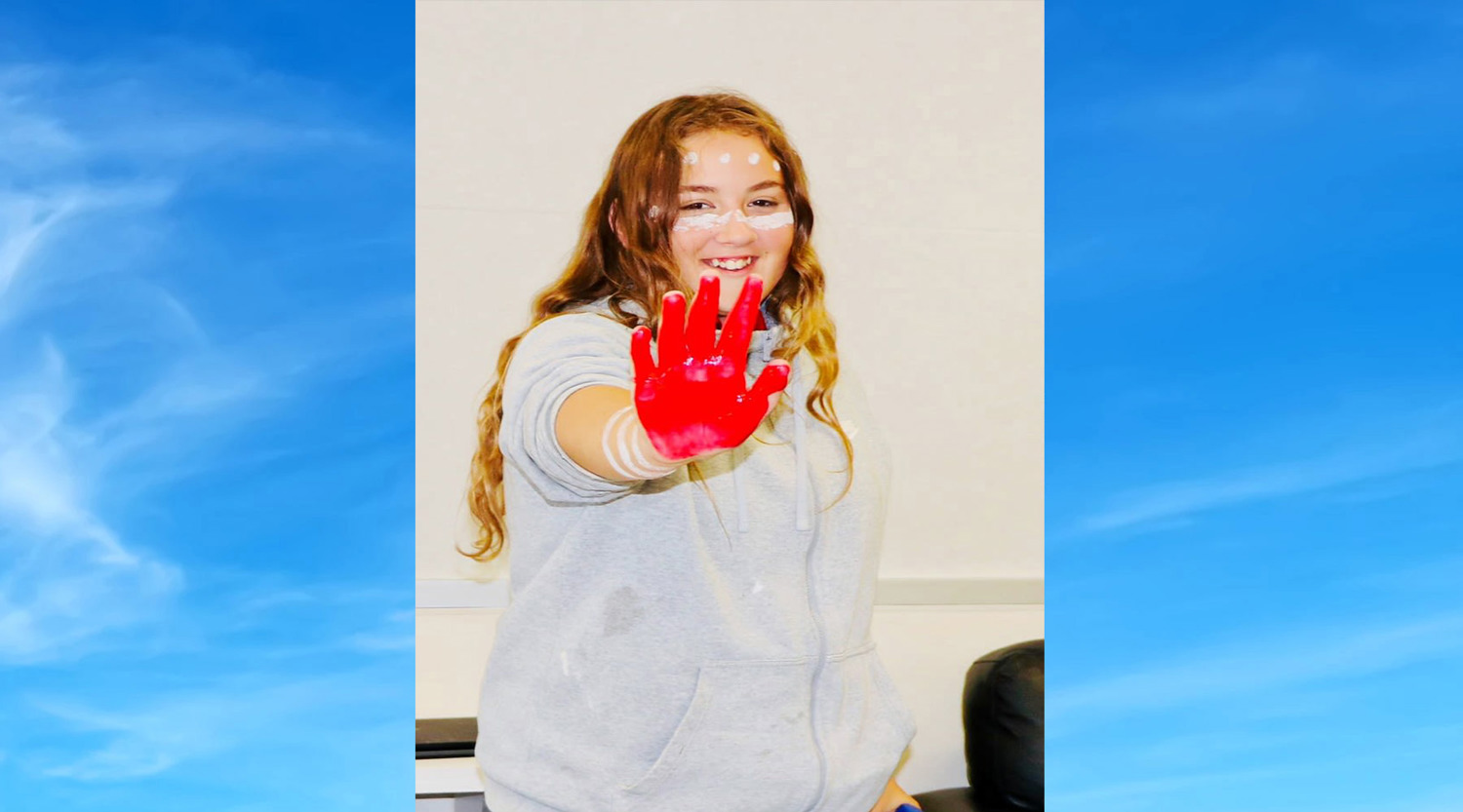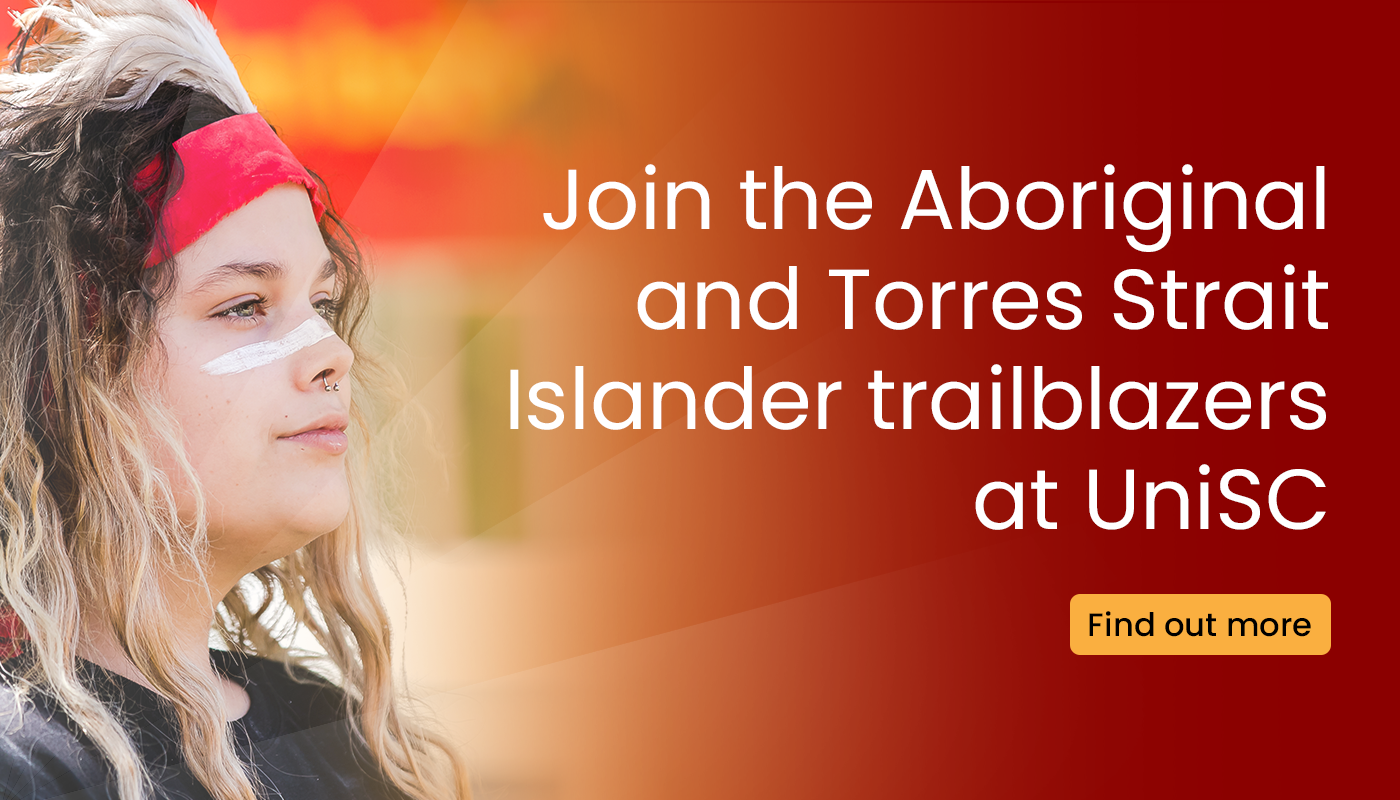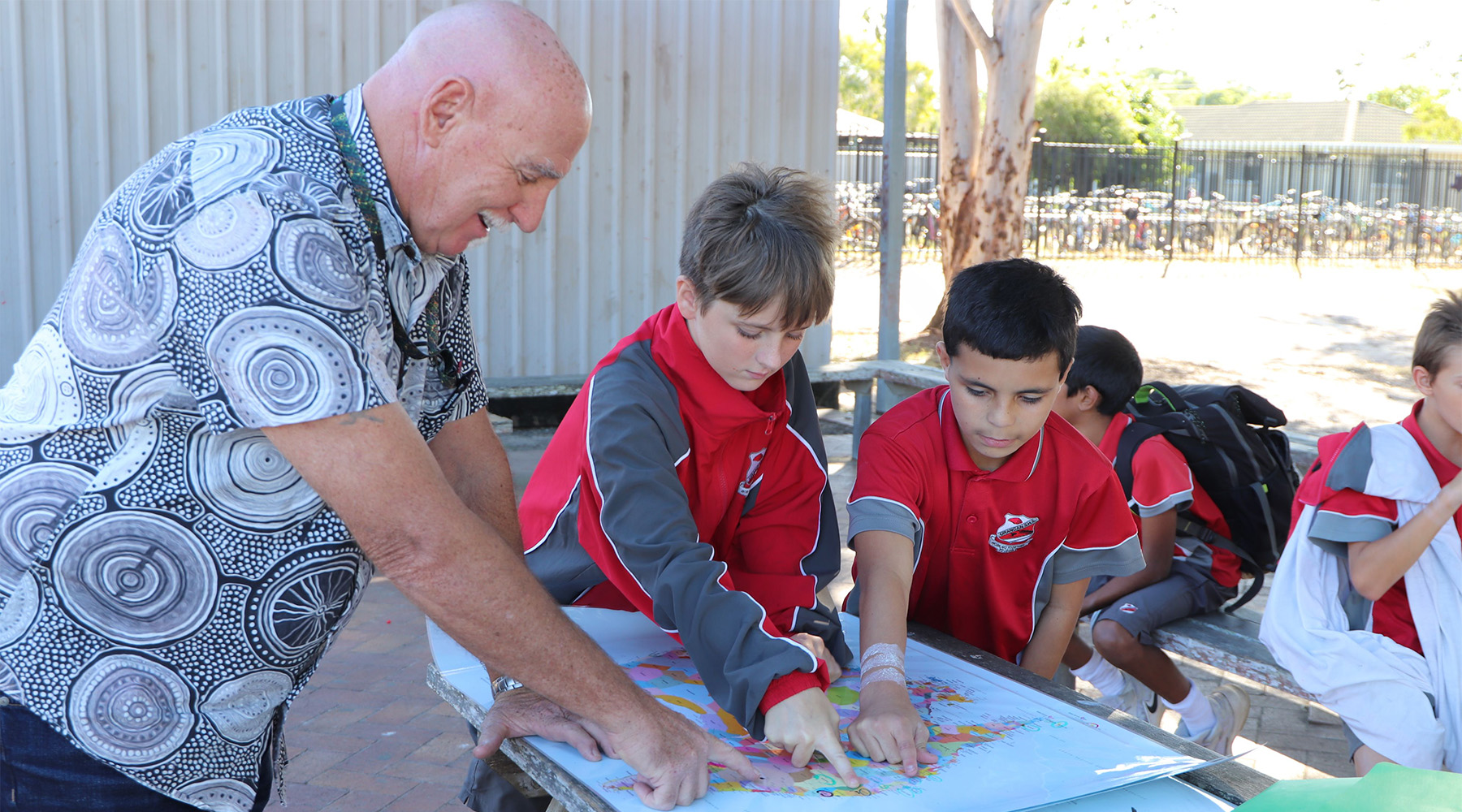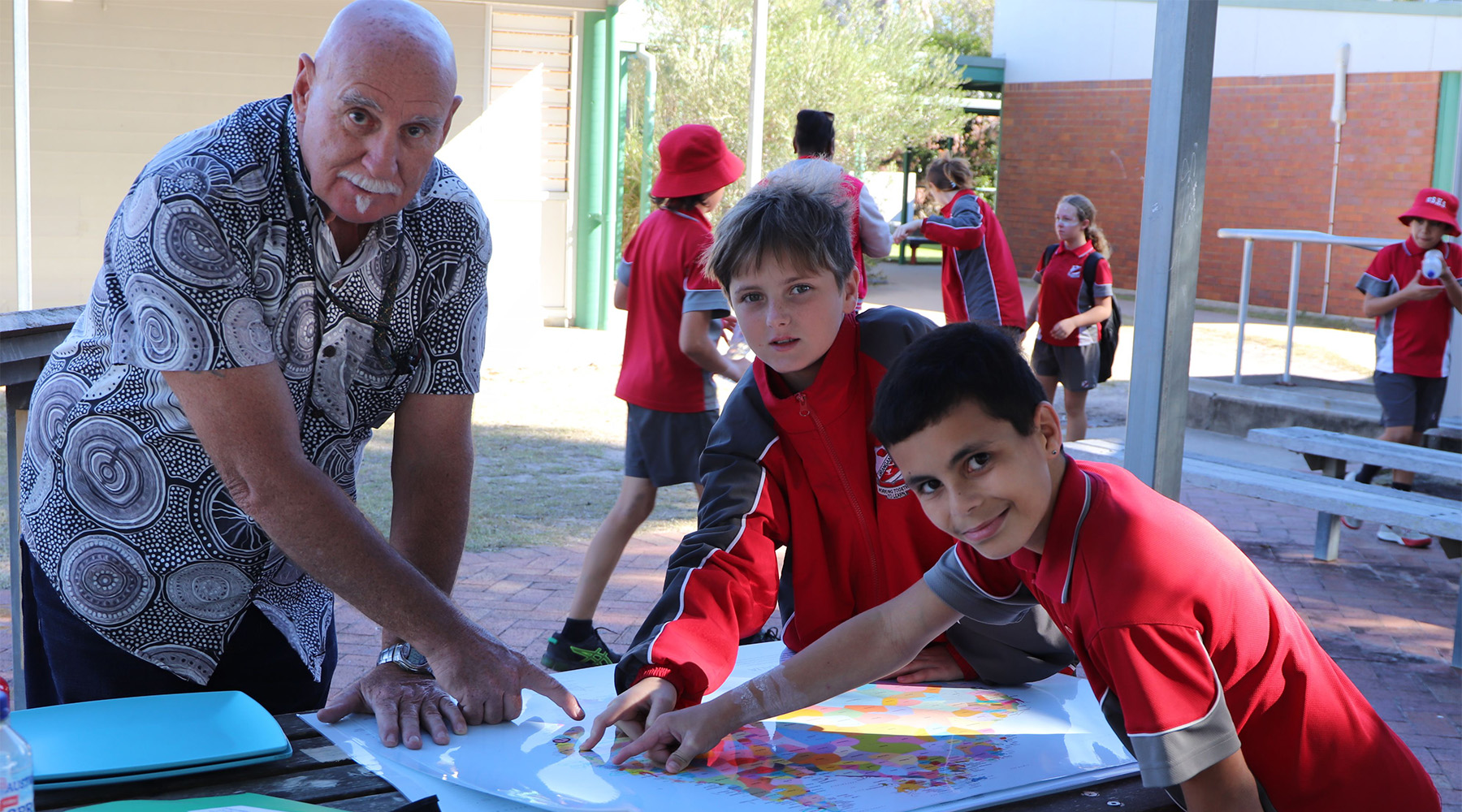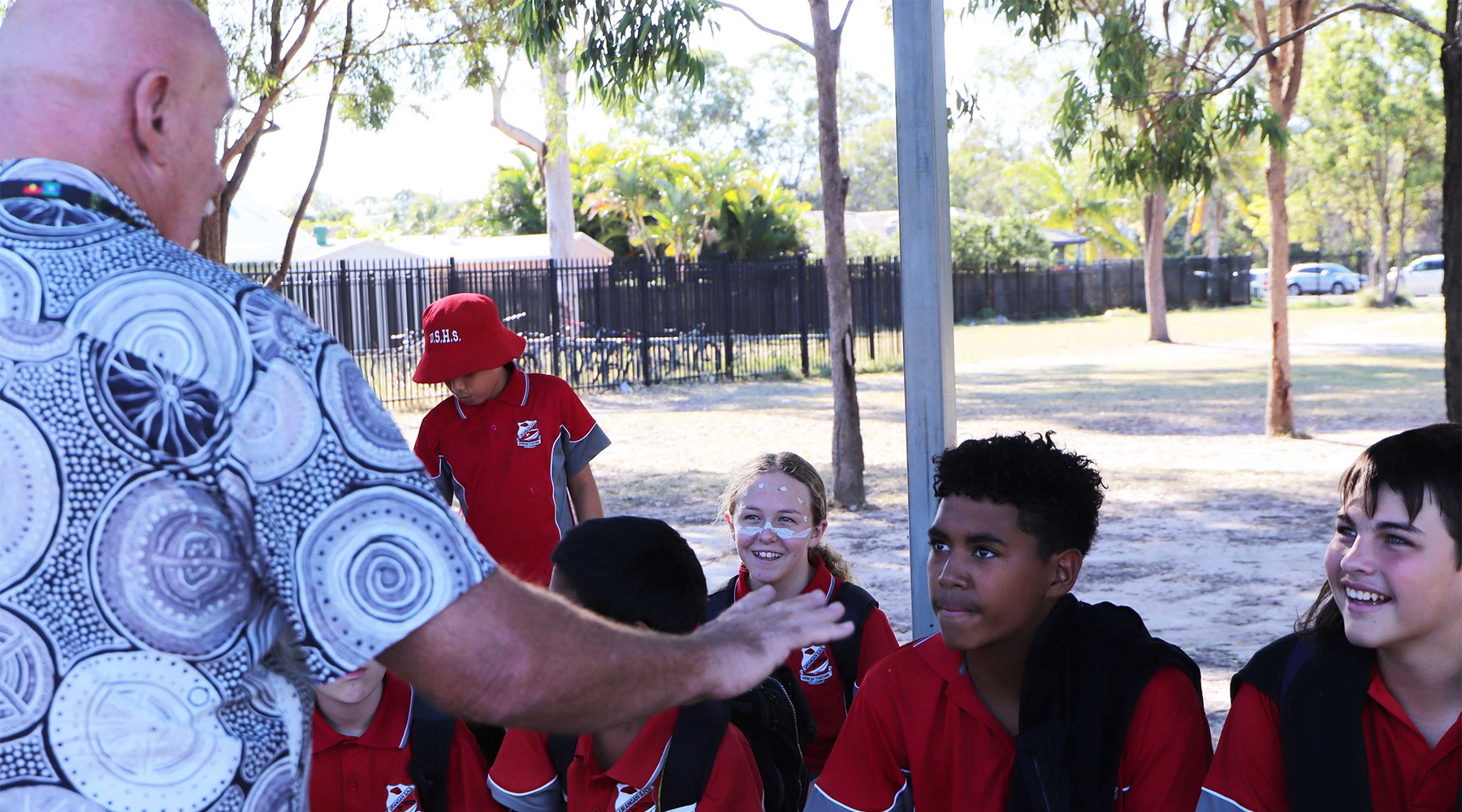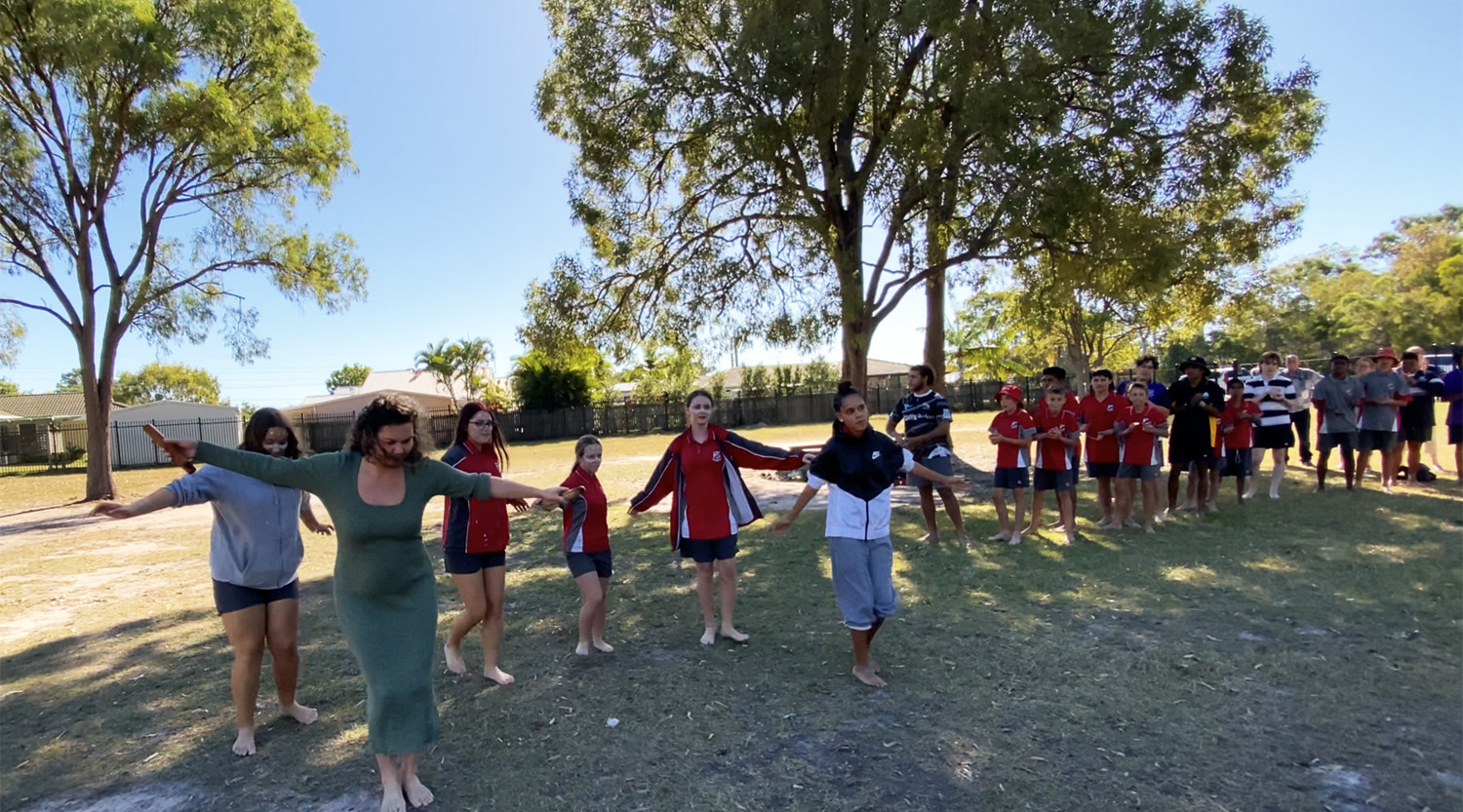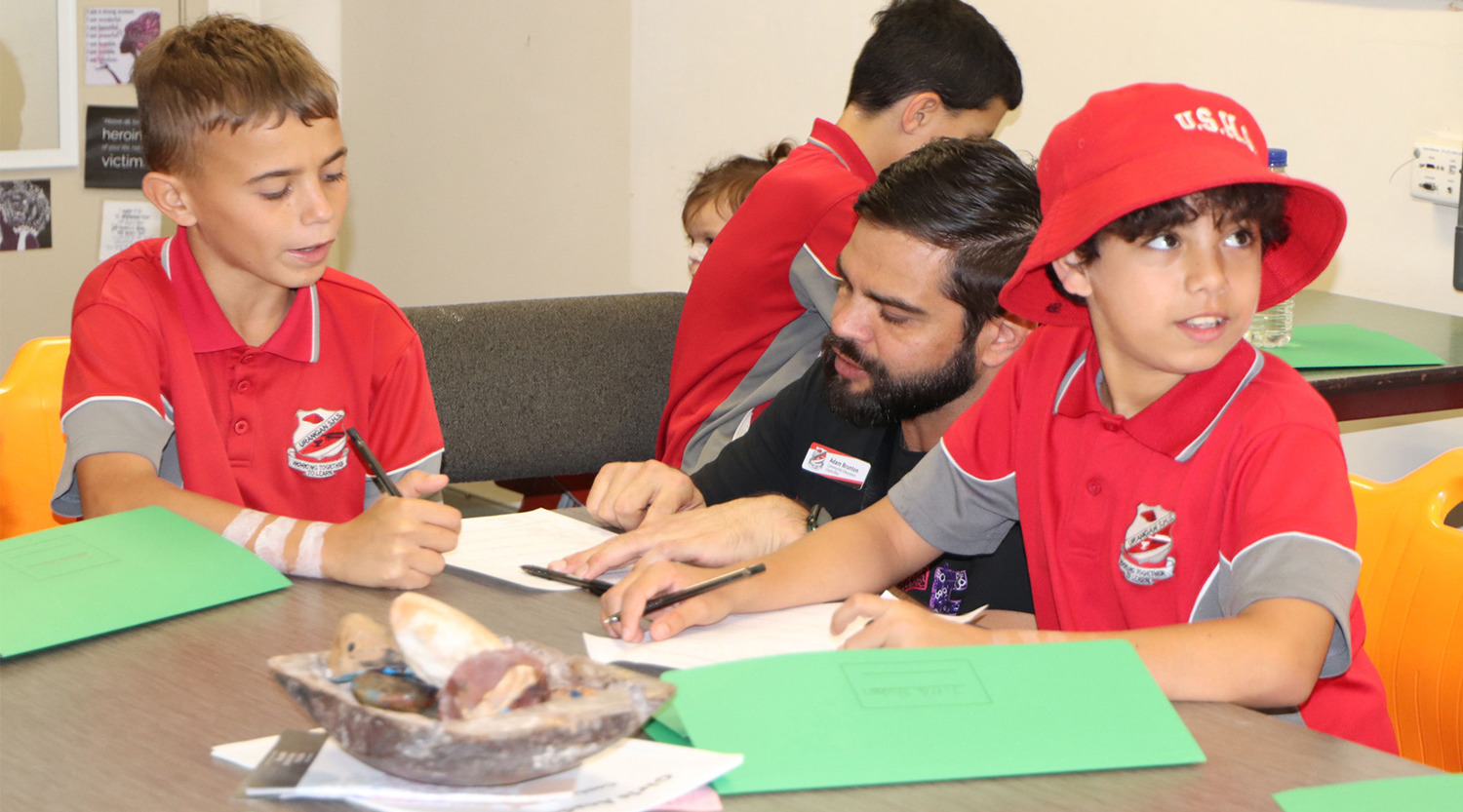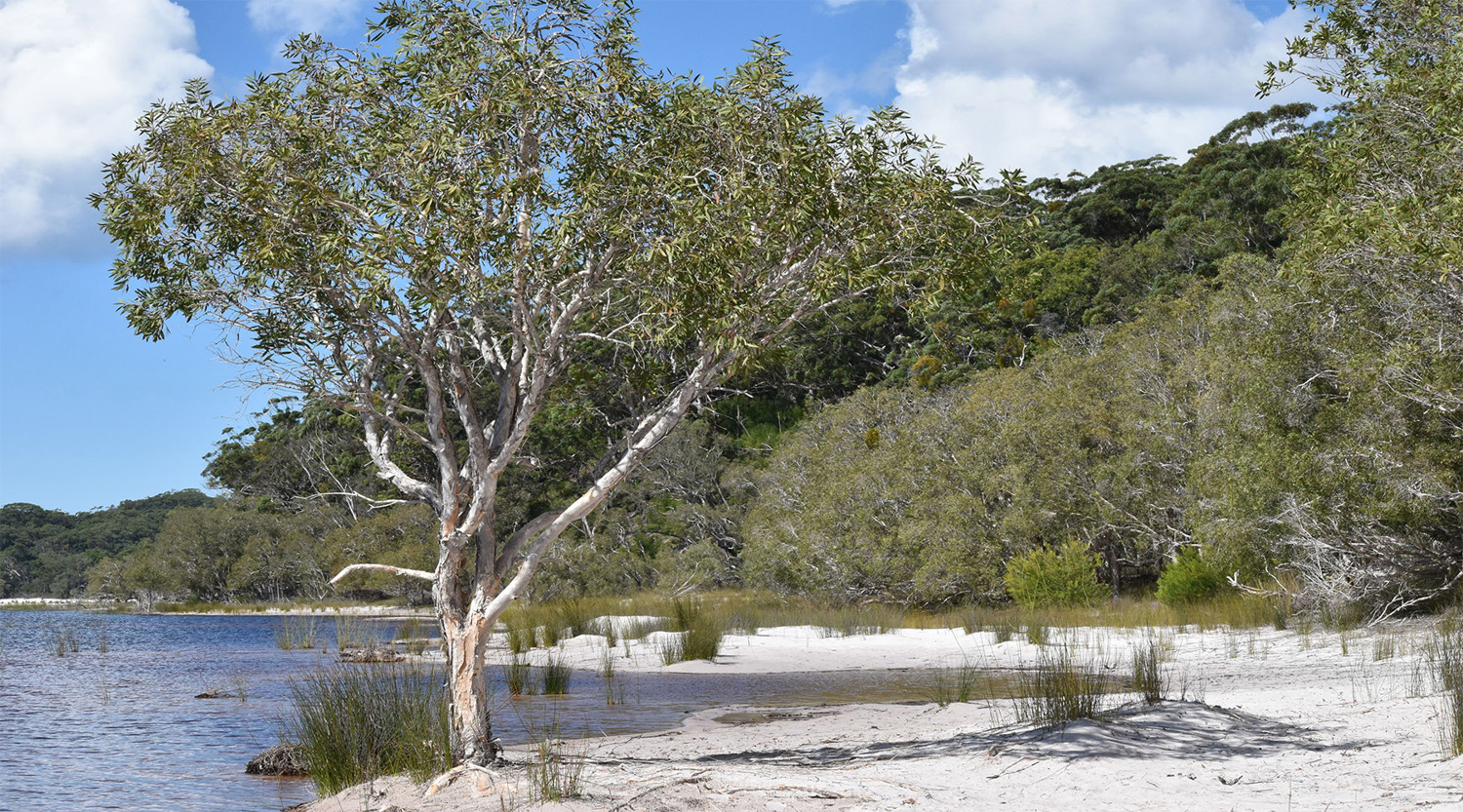A new program is helping Indigenous high school students find self-belief through their culture – and use it as their driving force to aim high when it comes to education and careers.
Year 8 student Yasmin Ruzic-Hall's face is alive with that sense of accomplishment that comes from learning something new, something meaningful.
“I didn’t really know much about my culture, how to dance or our stories before this,” says the Urangan State High School student who is taking part in the year-long program called Marigurim-Yan, or ‘Strong Walk’ in local Butchulla language.
The University of the Sunshine Coast-led initiative is being piloted for Aboriginal and Torres Strait Islander students in high schools across the Fraser Coast and offers a potential model for communities across Australia.
It is facilitated by UniSC Fraser Coast in partnership with the local community, Butchulla Elders and regional high schools, with funding through the Federal Government’s Higher Education Participation and Partnerships Program (HEPPP).
The need for new approaches that demonstrate success at lifting student outcomes, attendance and engagement is highlighted in the national Closing the Gap implementation plan. Marigurim-Yan works to support its aims to increase the proportion of Aboriginal and Torres Strait Islander people attaining year 12 or equivalent qualification and completing tertiary education.
Before taking part in the Marigurim-Yan, Yasmin says she had no idea that she was descended from Wuthathi People from the north eastern coast of Cape York Peninsula.
‘I like how through this we can connect and talk about our culture, our stories and song lines. I’m learning new things every day,” Yasmin says.
'I’ve always wanted to be a nurse or work in childcare because I’ve always liked caring for others, so that’s a possibility.'
“I most likely will go to uni after school, but I don’t know yet – I am still trying to work out exactly what I want to do when I am older. This program will help me figure that out." Yasmin Ruzic-Hall
This is what the Marigurim-Yan program is all about. Creating an environment where self-esteem and confidence grows and encouraging growth mindsets about education options after school for students, parents and carers.
“They need to want to succeed, and they need to see that it is possible.” Barry Bird
Project team member and Wiradjuri man, Barry Bird, brings insights gained from almost five decades as a teacher in mainstream and special education.
“Children who are happy in themselves do better at school. If school is relevant to them, if it is engaging for them, if they see purpose to what they are doing and they feel they belong there, they will succeed.”
“We are helping these students explore their identity and culture, to find out who their mob is, and how that makes them who they are – and to walk strong and proud,” Barry says.
“That’s the key to engaging these students in learning, keeping them at school and raising their aspirations. It is about showing pathways to other goals such as university and fulfilling careers.”
Showing the way
Marigurim-Yan harnesses the powerful, positive influence of Indigenous Elders, role models and mentors – with opportunities for students to engage and identify with people of all ages who can guide and inspire them.
Indigenous Elders and community members are leading the way with building and keeping a sense of pride in their culture and identity.
Through the celebration of dance, songs and teachings on story lines, language and traditional artefacts they are helping to create pride, connection and a sense of belonging among Year 7, 8 and 9 Aboriginal and Torres Strait Islander students.
One of the activities involves helping the 12 -14 year-olds explore a map of the many distinct language, social or nation groups of Australia’s First Peoples.
“No matter what part of Australia they come from, we are helping them discover their culture and identity and how that makes them who they are,” says Barry.
“Some may not know much about their culture and ancestors, which isn’t so uncommon when you consider Stolen Generations and lost generations because a lot of families didn’t identify over the years because of the restrictions and prejudices they faced.
“We want these young people to go ‘I’m proud to be Aboriginal, I’m proud to be Torres Strait Islander and I am proud to do well at school’."
Hearing their voices
The voices of Aboriginal and Torres Strait Islander people are integral to this program’s success, and what sets this apart from many others.
Dr Sharon Louth, a UniSC Senior Lecturer in Education, based at the Fraser Coast campus, who leads the ‘Marigurim-Yan’ initiative, says it is guided and validated by Indigenous knowledge and perspectives.
“The strength of this project is that it is community-driven, community-enacted and very much community-owned.”
Everyone who influences the students’ learning outcomes and aspirations is included – from parents and carers to community role models and industry partners – with opportunities for ongoing feedback and collaboration.
It is an approach based on prior research that increasing education aspirations for young Aboriginal and Torres Strait Islander children takes a whole community effort to work.
“As well as the students, we focus on empowering families through identity, belonging, awareness and choice, as they play such a critical role in their children’s learnings and goals,” Dr Louth says.
Students are also helping to shape the program.
“Through surveys we are gaining insights from them on how they feel about school – and how can we improve these experiences and better support them to stay engaged in education,” Dr Louth says.
“We are finding out what they understand about their education and careers opportunities when they finish school – and widening their knowledge about post-school pathways into higher education.
“We are adapting as we go to directly target our responses to what is relevant and what is required.”
It is no coincidence that the project is targeting Year 7 - 9 students.
“We believe these are the optimal ages to support students with this approach. They are new to secondary school and may not be fully aware of the big picture implications of their attendance and participation,” says Dr Louth.
While the final part of the program will target numeracy, literacy and other curriculum areas that the students themselves identify as areas they would like to improve, the measure of the success of the program is not academic attainment.
“We are building their self-belief, and if you get that lined up then the academics side of things will follow and improve. They will recognise the importance of attending school and putting in the effort to reaching their goals.”
"I think about my culture when I am doing our dancing. This program is making me realise that there is a lot more to figure out and learn. Doing this helping make me feel proud about myself" Year 7 Maryborough State High Student Zarliah Parsons
To help with this goal setting, students and their families and carers will explore career pathways and study options after Year 12 at an Opportunities expo on-campus at UniSC Fraser Coast, to be held later this year.
It is also a chance to connect with university and community support organisations, career representatives, employers – and to hear stories and insights from their role models about their careers.
“You can’t underestimate the flow-on effect from the whole kinship thing when they see people in their communities doing amazing things and they think this is what my mob can do.”
“It is about realising that there is nothing holding them back when they see their older siblings, cousins, aunts and uncles and parents working as teachers, police officers, nurses, doctors, lawyers and in other rewarding careers,” Barry says.
“We want them to see that this is normal. Finish high school and maybe go on to uni or gain a trade, get a job and help your community at the same time.”
The aim is that the students completing the program will go on to become role models themselves. “If they are doing well at school, and turning up all the time to learn, they’ll show the way for their younger siblings, cousins and friends."
"I like learning about our ancient artefacts and the tools that we used back in the day, and how the past makes me think about my future" Year 9 Maryborough State High School student Ethan White
Finding their future ‘on country’
For thousands of years, K’gari has been a place of learning and deep spiritual connection for the Butchulla People.
For the final stage of this year’s activities, Marigurim -Yan’s students will spend three days ‘on country’ at a goal setting retreat at UniSC’s Research and Learning Centre on K'gari, the world’s largest sand island.
Immersed in nature and guided by Elders and mentors, they will seek their own ways of knowing, being and doing as they chose their paths to walk strong into their futures.
Media enquiries: Please contact the Media Team media@usc.edu.au


